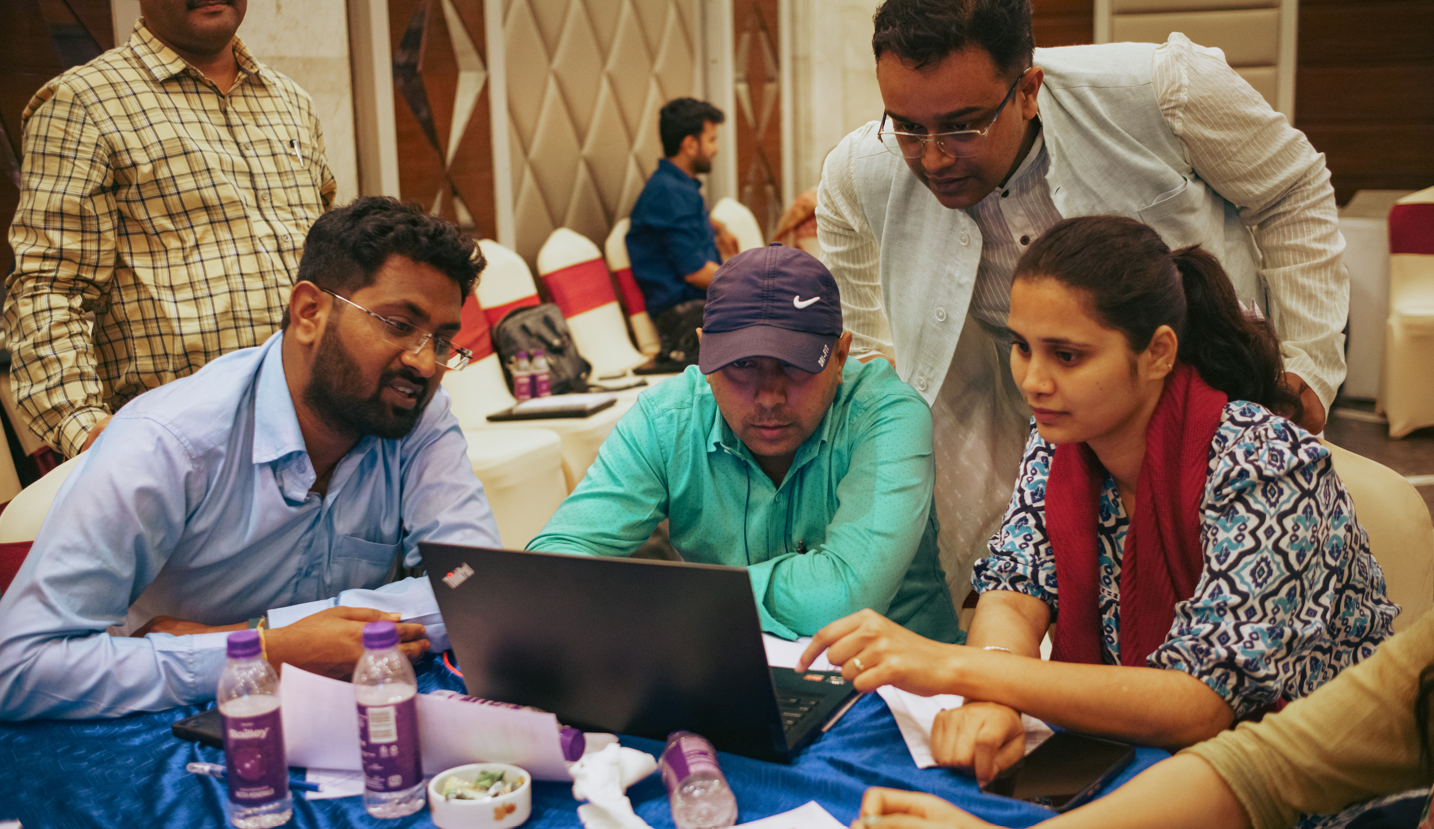Strengthening Administrative Data Systems for Evidence-Based Policymaking in India
- 21 June 2025
Megha Pradhan

This article first appeared on the American Evaluation Association blog in September 2023.
Hi, I am Megha Pradhan, Director for the Center for Learning on Evaluation of Results – South Asia (CLEAR South Asia), which is a center for evaluation capacity development and an Implementing Partner of the Global Evaluation Initiative (GEI).
Administrative data that is routinely collected for operational purposes, ranging from educational data on enrollment and dropouts to tax collection transactions, from agriculture and land records to ration distribution data, has immense potential for use in monitoring and evaluation. Evaluations that use administrative data can be faster, bigger, less expensive, and more accurate and precise. With increased digitization, the volume, quality, granularity, and real time availability of administrative data has improved significantly. Yet, there has not been a commensurate increase in its use in evaluations – with very little administrative data being accessed, analyzed, or used to improve decision-making.
There are several challenges that constrain the government’s ability to translate the vast amount of data that it has into insights for learning and planning. First, there is often an absence of standardized processes inside the government for each step of the data lifecycle: data collection, cleaning, verification, validation, compilation, analysis, sharing, retention, and use. Second, the lack of interoperable systems limits integration of data across multiple departments leading to limited scope for analysis and insights. Third, governments often have limited capacities and resources for adopting efficient data practices and using evidence for decision making, in a timely manner.
As part of GEI’s efforts to strengthen national M&E systems around the world, CLEAR SA has been working closely with government partners in India to improve their data systems. This has included advising on data policy, improving data collection practices, supporting government data analytics units, and so on. Based on our work, I have the following learnings to share.
Lessons Learned
- Communicate a comprehensive data use strategy: Developing and communicating a common vision and framework along the data continuum – from access to quality to use – is critical. The data strategy should identify what data is meaningful and reliable for defined purposes, what are the roles of different stakeholders (who owns the data, who manages it, who should have access) and define protocols for data collection, quality, and usability.
- Demonstrate successful data use cases: To establish a culture of data-based decision making, it is important to prioritize policy questions over datasets and showcase examples of successful projects that have utilized administrative data.
- Encourage enabling institutional arrangements: To develop a successful data strategy, it’s essential to plan how to put it into action and ensure accountability. This involves addressing issues like staffing, capacity building, funding, and organizational structures. For instance, if a government decides to establish a data analytics unit, it must have strong leadership and be capable of coordination with relevant departments. In addition to statisticians and data analysts skilled in data science, the unit should also include experts who have domain-specific knowledge.
- Leverage the power of partnerships: Building strong partnerships with academia, civil society, multilateral organizations, and private sector experts can enhance the government’s understanding of how data and technology can be applied and systems can be improved. These collaborations can also elevate the integration of data, technology, and evidence into the policymaking process.
Rad Resources
- Recording of “Using administrative data for stronger M&E systems” webinar organized by Govt. of India’s Development and Monitoring Evaluation Office as part of the gLOCAL Evaluation Week
- J-PAL/MIT’s Handbook on Using Administrative Data for Research and Evidence-based Policy for information, best practices, and case studies on how to access, handle, and analyze administrative data
- Government of India’s Data Governance Quality Index (DGQI), a diagnostic tool to asses data preparedness levels of all Ministries/Departments in India
- CLEAR South Asia’s blog on “Addressing administrative data gaps”
